You might feel perfectly healthy, going about your daily routine without a care in the world. But what if lurking beneath that sense of well-being is a ticking time bomb known as abnormal blood pressure? Often, there are no apparent symptoms, making it a silent but potentially deadly issue. Understanding the signs that indicate a need for a blood pressure check is crucial for long-term health. This post will highlight some of these signs, explain why they matter, and guide you on when to consult a healthcare provider. Let’s delve into the world of blood pressure and unravel its mysteries.
Contents
- 1 What Is Blood Pressure And Why Does It Matter?
- 2 The Silent Nature Of Blood Pressure Issues
- 3 Common Symptoms Of High Blood Pressure
- 4 Common Symptoms Of Low Blood Pressure
- 5 When External Factors Deceive You
- 6 Risk Factors You Can’t Ignore
- 7 The Right Time To Get Your Blood Pressure Checked
- 8 What To Expect During A Blood Pressure Check
- 9 How To Prepare For A Blood Pressure Check
- 10 The Importance Of Follow-Up And Management
- 11 Ensure Your Blood Pressure Is In Good Shape!
What Is Blood Pressure And Why Does It Matter?
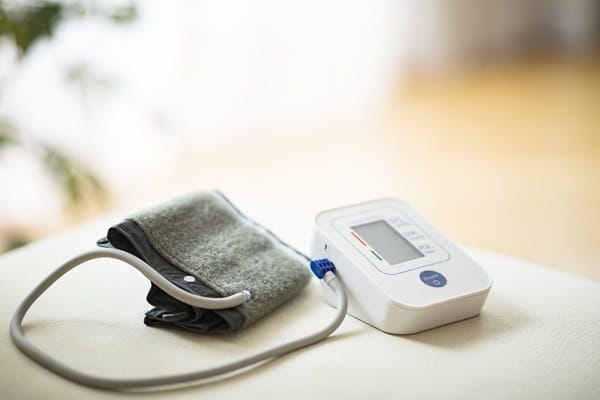
Blood pressure is the force exerted by circulating blood against the walls of your arteries. It’s measured in millimeters of mercury (mmHg) and is represented by two numbers: systolic pressure over diastolic pressure. The systolic number measures the pressure during heartbeats, while the diastolic number measures the pressure between heartbeats. Both numbers are crucial for diagnosing high or low blood pressure.
Ignoring abnormal blood pressure can lead to severe health consequences. High blood pressure, or hypertension, increases the risk of heart disease, stroke, and kidney failure. On the other hand, low blood pressure, also known as hypotension, can cause dizziness and fainting and, in severe cases, can be life-threatening. Therefore, understanding your blood pressure numbers is not just a number game; it’s a matter of life and death.
The Silent Nature Of Blood Pressure Issues
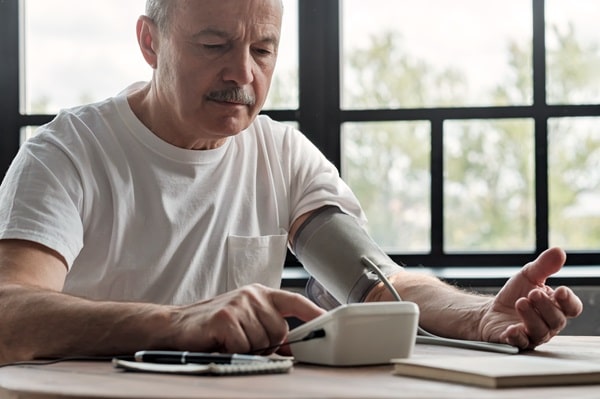
Often referred to as the “silent killer,” abnormal blood pressure can go unnoticed for years. Many people walk around unaware that they have a problem, as symptoms can be subtle or entirely absent. This lack of noticeable symptoms makes regular monitoring essential, especially for those at higher risk.
Statistics reveal a concerning picture. According to the Centers for Disease Control and Prevention, nearly half of adults in the United States have hypertension, but only about 1 in 4 have their condition under control. This gap underscores the importance of not just diagnosis but also effective management. Regular check-ups and monitoring can make all the difference in preventing the severe consequences of untreated high or low blood pressure.
Common Symptoms Of High Blood Pressure
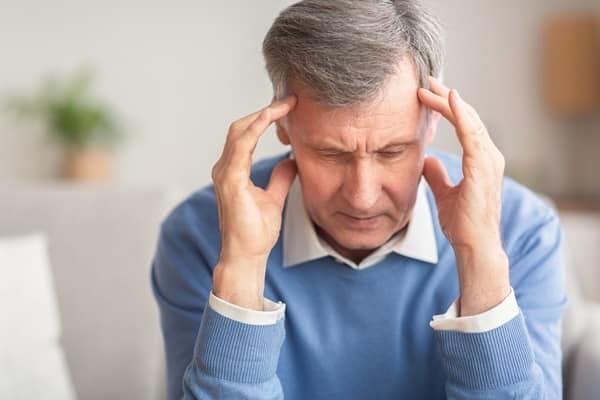
While high blood pressure can often go unnoticed, some symptoms might serve as red flags. Frequent headaches or migraines can be a sign that your blood pressure is elevated. These headaches often occur in the morning and may be accompanied by a pulsating sensation.
Another symptom to watch out for is fatigue or confusion. You might find it hard to concentrate or feel unusually tired, even after a full night’s sleep. Vision problems, such as blurriness or double vision, can also indicate high blood pressure, as can chest pain. If you experience any of these symptoms, it’s crucial to consult a healthcare provider for a comprehensive evaluation.
Common Symptoms Of Low Blood Pressure
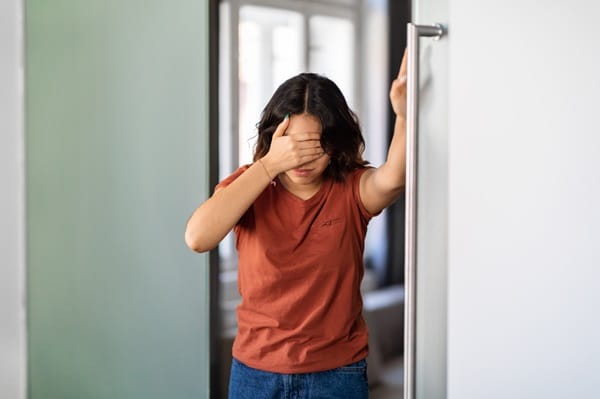
Low blood pressure, although less talked about, can also have a significant impact on your health. One of the most common symptoms is dizziness or lightheadedness, especially when standing up from a sitting or lying position. This sensation can be disorienting and may lead to imbalance or falls.
Fainting, medically known as syncope, is another symptom that should not be ignored. Fainting can be particularly dangerous if it occurs while driving or operating heavy machinery. Lack of concentration and blurred vision are other signs that your blood pressure may be lower than normal. If you experience these symptoms, a blood pressure check should be high on your list of priorities.
When External Factors Deceive You

Recognizing that various external factors can temporarily elevate or lower your blood pressure is essential. Consuming caffeine, stress, or even the time of day can influence your readings. For instance, blood pressure tends to be lower in the morning and increases throughout the day. This is why healthcare providers often recommend multiple readings at different times to get an accurate assessment.
However, it’s crucial not to dismiss elevated readings solely because you’ve had a stressful day or consumed a cup of coffee. While these factors can affect your blood pressure temporarily, consistently high readings, even if only occasional, should not be ignored. It’s better to err on the side of caution and consult a healthcare provider for a thorough evaluation.
Risk Factors You Can’t Ignore

Certain risk factors make it more likely for you to develop high or low blood pressure. Age is a significant factor; the risk of hypertension increases as you get older. Family history and genetic predispositions also play a role. If your parents or grandparents had high blood pressure, you’re at a higher risk of developing it yourself.
Lifestyle choices can also significantly impact your blood pressure. A diet high in salt, lack of exercise, and smoking are all risk factors for hypertension. Pre-existing conditions like diabetes or kidney disease can also make you more susceptible. Being aware of these risk factors can help you take proactive steps to monitor your blood pressure and make necessary lifestyle changes.
The Right Time To Get Your Blood Pressure Checked
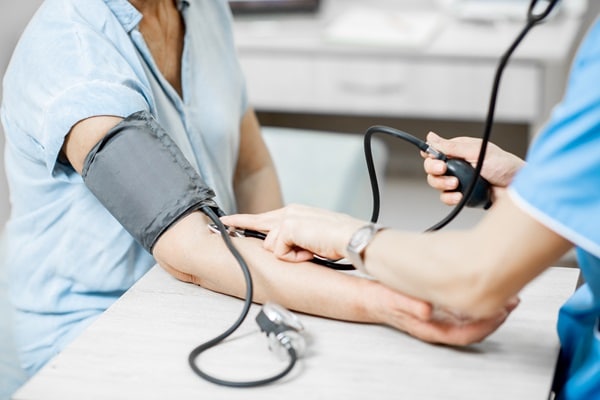
Routine blood pressure checks are generally part of regular medical check-ups, but there are special circumstances when additional monitoring may be necessary. For example, during pregnancy, medication changes, or after reaching certain age milestones, more frequent checks may be advised. Some healthcare providers also recommend annual checks for adults over the age of 40.
Self-monitoring is another option that’s gaining popularity. Home blood pressure monitors are widely available and easy to use. However, it’s essential to consult your healthcare provider about how often you should check your blood pressure at home. Self-monitoring can be a valuable tool, but it should complement, not replace, professional medical advice and diagnosis.
What To Expect During A Blood Pressure Check
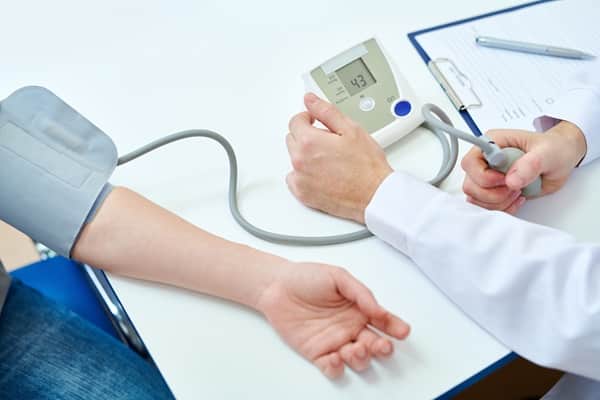
If you’ve never had your blood pressure checked, the process is straightforward but essential. A healthcare provider will typically use an inflatable arm cuff and a pressure-measuring gauge. The cuff inflates to temporarily stop the flow of blood in your artery, then slowly deflates while the gauge measures the pressure.
Understanding what the numbers mean can help you take appropriate action. The systolic number indicates the pressure when your heart beats and the diastolic number shows the pressure when your heart is resting between beats. If either of these numbers is consistently too high or too low, your healthcare provider will likely recommend further tests or lifestyle changes. In some cases, medication may be prescribed to manage your blood pressure effectively.
How To Prepare For A Blood Pressure Check

Before you go in for a blood pressure check, there are several things you can do to ensure the most accurate reading. First, avoid caffeine, alcohol, and exercise for at least 30 minutes before the test. These can temporarily elevate your blood pressure and give a false reading. It’s also advisable to sit quietly for a few minutes before the test to calm your nerves, as anxiety can also affect the results.
Wearing loose-fitting clothing can make the process easier and more comfortable. Tight sleeves can interfere with the blood pressure cuff and potentially affect the reading. Also, make sure to empty your bladder before the test, as a full bladder can slightly elevate your blood pressure. Following these guidelines can help ensure that you get the most accurate reading possible, which is crucial for effective diagnosis and treatment.
The Importance Of Follow-Up And Management

Once you’ve had your blood pressure checked and received your results, the journey doesn’t end there. If your readings are abnormal, your healthcare provider will likely recommend additional tests or lifestyle changes. In some cases, medication may be prescribed. It’s crucial to follow your healthcare provider’s advice and recommendations closely.
Regular follow-up appointments are essential for monitoring your blood pressure and adjusting treatment as necessary. If medication is prescribed, it’s vital to take it as directed and report any side effects to your healthcare provider. Lifestyle changes, such as a healthier diet and regular exercise, can also play a significant role in managing your blood pressure effectively. Consistent monitoring and proactive management are key to maintaining long-term health.
Ensure Your Blood Pressure Is In Good Shape!
In a world where health often takes a backseat to your busy life, taking the time to monitor something as crucial as blood pressure can make all the difference. You’ve learned about the signs, the risk factors, and the importance of regular checks. Now, it’s time to take action. Schedule that appointment, make those lifestyle changes, and keep an eye on your numbers. Your future self will thank you.


